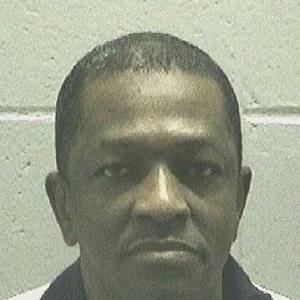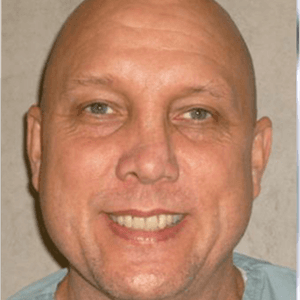
On March 19, 2024, the Georgia Board of Pardons and Parole denied clemency for Willie Pye (pictured), who is scheduled to be executed on March 20, despite arguments that he has an intellectual disability and is therefore ineligible for execution, per Georgia state law and U.S. Supreme Court precedent. Convicted in 1996 for the 1993 murder of his ex-girlfriend, Alicia Yarbrough, Mr. Pye has spent the last 28 years on Georgia’s death row. Mr. Pye’s case has also generated public concern due to the notorious racism of his trial attorney, Johnny Mostiler, against Black defendants. At least two pending lawsuits seek to delay or prevent Mr. Pye’s execution.
The state’s order scheduling Mr. Pye’s execution, which would be the first execution in Georgia in over four years, prompted a lawsuit by the ACLU of Georgia and The Appeal news organization against the state’s lethal injection protocol. The plaintiffs argue that Georgia’s “severe restrictions on press access” to executions violate the First Amendment. Georgia allows journalists only “limited auditory access” to executions, and bars them from seeing the death chamber for most of the process, including the placement of the IV line. “Having members of the press during the entire execution process is the only way brutal problems are revealed,” said Gerry Weber, an attorney for the plaintiffs. “Secreting the execution process hides its reality.” The lawsuit asks the court for an injunction preventing Georgia from conducting executions until the “unconstitutional limits” on media witnesses are removed.
Mr. Pye’s attorneys are also challenging his execution on equal protection grounds, arguing that he was unlawfully excluded from a COVID-era agreement that protected other death-sentenced prisoners. Georgia’s pause in executions dates back to March 2020, when the pandemic prompted the Georgia Supreme Court to declare a judicial emergency that would halt all pending executions. Many attorneys for individuals on the state’s death row feared that as their clients reached final appeals, these new restrictions would prevent them from preparing clemency applications and litigation. In April 2021, the Federal Defender Program in Atlanta and the Georgia Attorney General’s Office reached an agreement to not seek any new execution dates until the emergency was lifted, normal visitation was reinstated, and the COVID-19 vaccine was readily available to “all members of the public.” This agreement only applied to prisoners who exhausted their appeals during the judicial emergency, which was lifted in June 2021. Mr. Pye’s appeals were exhausted in 2023. His attorneys now argue that the state has violated the 14th Amendment guarantee of equal protection by excluding Mr. Pye from the agreement and creating “a distinct, disfavored class of death row prisoners, one without the baseline guarantee of adequate representation,” said Nathan Potek, one of Mr. Pye’s attorneys.
In his request for clemency, Mr. Pye’s attorneys called his 1996 trial “a shocking relic of the past,” citing the severe limitations of the Spalding County public defender system in the 1990s, in which just one attorney represented all indigent defendants. Mr. Pye’s court-appointed attorney, Johnny Mostiler, spent just 150 hours on his case, including jury selection and the trial itself. According to Mr. Pye’s clemency petition, Mr. Mostiler worked with one other attorney and an investigator in hundreds of felony cases, as well as his private practice, and “effectively abandoned his post,” while representing Mr. Pye. At trial, Mr. Mostiler did not present important mitigating evidence surrounding Mr. Pye’s intellectual disability and adverse childhood experiences, which could have persuaded a jury to sentence Mr. Pye to life in prison without parole.
“Had defense counsel not abdicated his role, the jurors would have learned that Mr. Pye is intellectually disabled and has an IQ of 68,” attorneys wrote in his clemency application. They added that had the jury “learned the challenges [Mr. Pye] faced from birth —profound poverty, neglect, constant violence and chaos in his family home— foreclosed the possibility of healthy development,” the outcome of trial may have differed. Multiple experts have tested Mr. Pye’s IQ score, with a state expert, Dr. Glen King, measuring his “full scale IQ at 68” and other testing placing his IQ at 70. Medical professionals and experts acknowledge “that it is possible to diagnose intellectual disability in individuals with IQ ranges from 70-75 or below.” Despite Georgia being the first state to bar the execution of intellectually disabled individuals, it is the only state that requires a defendant to prove intellectual disability beyond a reasonable doubt, rather than by the preponderance of evidence. Consequently, just one defendant has successfully raised an intellectual disability claim in the past three decades.
Mr. Pye’s clemency petition pointed to numerous adverse childhood experiences that his trial counsel failed to present to jurors during the sentencing phase. He was raised in extreme poverty and “was not only lacking the food and shelter necessary for a child to thrive, but other necessities as well— opportunities to face new intellectual challenges, to practice motor skills, to learn language and to appreciate normal social attachments.” Mr. Pye’s childhood home lacked indoor plumbing, a traditional kitchen, and a functioning, indoor bathroom. Childhood friends of Mr. Pye recalled that “in a community where most of us didn’t have much, [his] family had nothing at all.” The petition also outlines neglect and abuse from both of Mr. Pye’s parents, who had alcohol dependency problems. Mr. Pye’s mother drank heavily during her pregnancy, and his attorneys argued that he suffered from brain damage that may be the result of fetal alcohol syndrome, which impacts an individual’s impulse control.
Additionally, Mr. Pye’s clemency petition detailed the positive impacts he has had on fellow prisoners, correctional staff, and his family, throughout his 28 years behind bars. Reverend Rick Moncrief, a volunteer prison chaplain at the Georgia Diagnostic and Classification Prison, told his attorneys that “in the many hours [he’s] spent talking with [Mr. Pye], [he] never heard him say anything unkind about others in the prison, fellow inmates, guards – anyone.” Rev. Moncrief added that he has “had many spiritual conversations with Willie” throughout his incarceration and that Mr. Pye has told him several times “that he bears the responsibility for the crime. He is very remorseful.”
Sources
Liliana Segura, After Four Years Without An Execution, Georgia Prepares to Kill Willie Pye, The Intercept, March 20, 2024; Associated Press, Georgia execution set for today would be state’s first in over 4 years, CBS, March 20, 2024; Christopher Cann, Execution in Georgia: Man to be put to death for 1993 murder of former girlfriend, USA TODAY, March 20, 2024; Mary Kekatos, Georgia board declines to stay man’s execution after lawyers claim he’s intellectually disabled, ABC News, March 19, 2024; Dorrie Toney, ACLU of Georgia Challenges State’s Unconstitutional Restrictions on Execution Witnesses, Press Release, March 11, 2024.
See Mr. Pye’s clemency petition, here.




